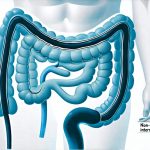The rise of food tracking apps and wearable technology has fundamentally altered how many people interact with their diets. Initially intended as tools for weight management or macro counting, these technologies have seeped into everyday life, becoming integral to a growing segment’s awareness – and often obsession – with what they eat. While increased dietary mindfulness can be beneficial, the constant scrutiny of food intake, coupled with the pressure to log everything perfectly, can inadvertently create a complex relationship with both food and bodily functions. One surprisingly common consequence emerging from this hyper-focus is altered bowel habits, specifically constipation, often linked not to underlying medical issues but to the psychological and behavioral changes introduced by relentless tracking. It’s important to understand that while correlation doesn’t equal causation, there’s a growing body of anecdotal evidence – and some preliminary research – suggesting a link between meticulous food logging and digestive distress.
This isn’t necessarily about what people are eating when they track; it’s often about how they’re approaching their diet. The relentless pursuit of “clean” eating, restrictive regimes based on perceived health ideals, or anxieties around hitting precise macronutrient targets can all contribute to stress and disruption of natural digestive processes. Food tracking, in its purest form, aims for objectivity but frequently breeds a subjective, often anxious experience centered around control. This article will explore the nuanced ways constant food tracking may impact constipation patterns, examining the psychological factors at play, common behavioral changes that emerge, and strategies for fostering a healthier relationship with both food and your digestive system. It’s about recognizing when meticulous tracking becomes detrimental and finding a balance between awareness and obsessive behavior.
The Psychology of Tracking & Bowel Function
The core issue isn’t necessarily the act of logging calories or macros itself; it’s the mindset that often accompanies it. For many, food tracking quickly transforms from a data-gathering exercise into a performance metric. Success is defined by adherence to rigid plans and achieving specific numbers, creating a self-imposed pressure cooker around every meal. This constant evaluation fosters anxiety, particularly concerning deviations from the plan – even minor ones. That anxiety can directly translate into physiological changes impacting digestion. The gut-brain axis is well documented; stress significantly impacts digestive motility, often slowing it down. Chronic stress, fueled by tracking anxieties, isn’t just a mental state; it physically alters how your body processes food and eliminates waste.
This psychological pressure also contributes to disordered eating patterns, even in individuals who don’t meet the clinical criteria for an eating disorder. The focus shifts from nourishment to restriction and control, leading to feelings of guilt or shame around “unhealthy” choices. This can trigger cycles of restrictive behavior followed by periods of perceived failure (even if the deviation is minimal), further exacerbating anxiety and disrupting digestive regularity. It’s a self-perpetuating cycle where tracking intended to improve health ironically creates more problems. The pursuit of perfect control often undermines physiological wellbeing.
Beyond anxiety, food tracking can also foster an unhealthy level of hypervigilance towards bodily sensations. Individuals become acutely aware of – and sometimes fixated on – their digestive processes, interpreting normal fluctuations as signs of something going wrong. This heightened awareness can lead to increased worry about bowel movements, further contributing to stress and potentially exacerbating constipation. It’s a case where paying too much attention to the body can paradoxically make it more difficult for the body to function naturally.
The Role of Restriction & Fiber Intake
A common outcome of meticulous food tracking is unintentional or intentional restriction – even when not explicitly dieting for weight loss. Tracking often leads to eliminating foods perceived as “bad”, based on arbitrary rules or popular diet trends, potentially reducing overall dietary diversity and impacting fiber intake. Fiber is crucial for healthy bowel movements; it adds bulk to the stool, making it easier to pass. Many tracked diets prioritize lean proteins and low-fat options, sometimes at the expense of fiber-rich foods like whole grains, legumes, fruits, and vegetables. This isn’t always a conscious decision but can happen as individuals attempt to stay within pre-defined macro targets or avoid certain food groups based on perceived health concerns.
Furthermore, restrictive eating patterns often lead to smaller portion sizes overall. While mindful portion control is beneficial, excessively small meals can reduce the stimulus for bowel movements. The digestive system relies on a sufficient volume of food to trigger peristalsis – the wave-like muscle contractions that move waste through the intestines. Insufficient food intake reduces this stimulation, contributing to slower transit time and constipation. It’s not necessarily about avoiding specific foods; it’s about ensuring adequate overall consumption, including enough fiber and sufficient quantity.
The pressure to adhere to a tracked diet can also lead to delayed or skipped meals if individuals are unable to log their food accurately or find suitable options. This disruption of regular meal times further disrupts digestive patterns, making the body less predictable in its elimination processes. Consistency is key for gut health, and constant dietary disruptions – even small ones – can significantly impact bowel regularity. Constipation Caused by Restrictive Food Habits highlights this very issue.
Dehydration & Movement as Afterthoughts
Food tracking tends to focus almost exclusively on what you eat, often overlooking other critical factors that influence digestion: hydration and physical activity. When meticulously planning meals and logging intake, it’s easy to neglect adequate water consumption. Dehydration is a leading cause of constipation; water softens the stool and facilitates its passage through the intestines. The preoccupation with food can inadvertently overshadow this essential aspect of digestive health. Many tracking apps don’t sufficiently emphasize or remind users about hydration, leading to inadequate fluid intake.
Similarly, physical activity often takes a backseat when individuals are intensely focused on their diet. Exercise stimulates intestinal motility, helping to move waste through the digestive system. The time and energy devoted to food tracking can displace opportunities for regular exercise, further contributing to constipation. It’s not about needing intense workouts; even moderate physical activity – walking, yoga, or stretching – can significantly improve bowel function. A holistic approach to health recognizes that diet is only one piece of the puzzle. Constipation Linked to Inactive Weekend Patterns illustrates how movement impacts regularity.
Breaking the Cycle: Mindful Tracking & Beyond
The goal isn’t necessarily to abandon food tracking altogether; for some individuals, it’s a valuable tool for managing specific dietary needs or health conditions. The key lies in shifting from rigid control to mindful awareness. First, evaluate why you are tracking. Is it driven by anxiety and restriction, or is it genuinely supporting your health goals? If the former, consider reducing the frequency of tracking or focusing on broader patterns rather than individual meals.
Second, prioritize a more balanced approach to dietary intake. Focus on incorporating fiber-rich foods into your diet – fruits, vegetables, whole grains, legumes – and ensure adequate hydration throughout the day. Third, reintroduce flexibility into your eating habits. Allow for occasional “off-plan” meals without guilt or self-criticism. Remember that a single deviation doesn’t derail progress; it’s part of a healthy relationship with food. Constipation Worsened by Emotional Food Avoidance shows how emotional eating impacts digestion.
Finally, consider incorporating other lifestyle factors that support digestive health: regular exercise, stress management techniques (meditation, yoga, deep breathing), and mindful eating practices. Focus on nourishment rather than restriction. Digestive Trouble From Replacing Food With Coffee reminds us of the importance of consistent nutrition. If constipation persists despite these changes, consult with a healthcare professional to rule out any underlying medical conditions. Constipation Onset From Low Overall Food Volume and Hard Stool Patterns From Low Overall Food Volume explain the consequences of inadequate intake. Constipation From Food Combining Fears or Restrictions underscores the impact of anxiety on bowel function. The goal is to cultivate a sustainable, healthy relationship with food – one that supports both physical wellbeing and mental peace.


















